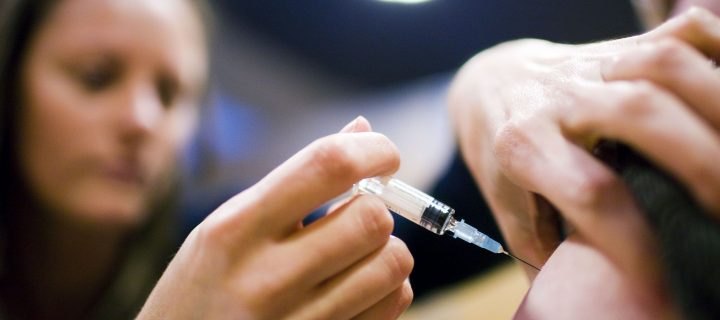It is being developed, and scientists could take over a year to be finished.
The vast majority of people who contract COVID-19 will fare well. Not everyone will, however, and in light of this fact, vaccinologists are presently studiously at work trying to develop a vaccine to fight the global grip of the novel coronavirus.
Here are 10 things to know about the much needed vaccine:
1) Many companies and institutions are working on a solution simultaneously
According to The Guardian.com, at least 35 companies and organizations are presently working on developing a vaccine.
2) Scientists are attempting traditional routes
Vaccines are made in various ways, and some are tried-and-true. This includes injecting live, weakened forms of the virus into humans, and inactivating the virus with chemical and intense heat before doing so.
Related: CoVid-19: Make these changes to your daily hygiene routine
3) They are also trying new ones
Vaccinologists, particularly those working for Moderna, are trying to develop a solution that would be made from the genetic material of the novel coronavirus, itself. This would be the first vaccine of its kind ever approved for use, in history.
4) The vaccine may be closely related to that for SARS
Other deadly coronaviruses have hit humanity in history. Both SARS and MERS were coronaviruses that jumped to us from animals. In fact, the vaccine that was developed to treat SARS, but was shelved before its completion, could be key.
Sars-CoV-2, the virus that causes COVID-19, is said to share 80% to 90% of its genetic makeup with the virus that caused SARS, and consequently, this could be of help.
5) 3 levels of trials will be needed
Every vaccine made needs to go through many levels of human trials, to identify all possible side effects and to rule out the life-threatening ones.
At the first level, a vaccine is tried in small groups of people. Following this, it is tried in several hundred study participants. In the final stage, a vaccine is trialed in several hundred thousand people, to ensure it is safe.
Related: The Coronavirus: 10 answers to your most common questions
6) It may be one of the fastest vaccines ever made
Due to the care and caution that need to go into making a vaccine, they can often take years to develop, in fact, some say they take up to ten years on average. If the COVID-19 vaccine is made in must 18 months, it could be one of the fastest ever developed.
7) An experimental version may be available by this fall
Barring some miracle, it is unlikely that a vaccine will be ready in under one year, for the general public. There could be one available for use in healthcare workers as soon as this coming fall, however, according to Techcrunch.com.
8) It will be the 15th vaccine
There are already fourteen vaccines present in the world, available to treat diseases like polio, tetanus and rubella. When the COVID-19 virus is made, it will be the 15th on the planet.
Related: This is one hidden health hazard of using mouthwash
9) People could be paid $1,100 to try it
According to The Atlantic.com, people could be paid up to $1,100 to participate in human trials for the COVID-19 vaccine. They would have the vaccine injected into them, and would then be monitored for side effects and other events.
10) In its place, scientists may try the “human-blood-bag” approach
If the vaccine takes too long to make due to present and unforeseen challenges, scientists may try another approach. According to The Atlantic.com, the science world could turn to what the website termed, “the human-blood-bag” approach.
People who have already survived the coronavirus, (ie, those who have caught it and successfully fought it off), now have antibodies to fight it, in their bodies. These antibodies can be extracted through a blood donation. A lab can filter them out, and inject this “hyperimmune serum” into people who are sick, or healthy people who are trying to stay that way.
The antibodies won’t last forever, but they could bide patients some days or weeks, and help them to survive.












